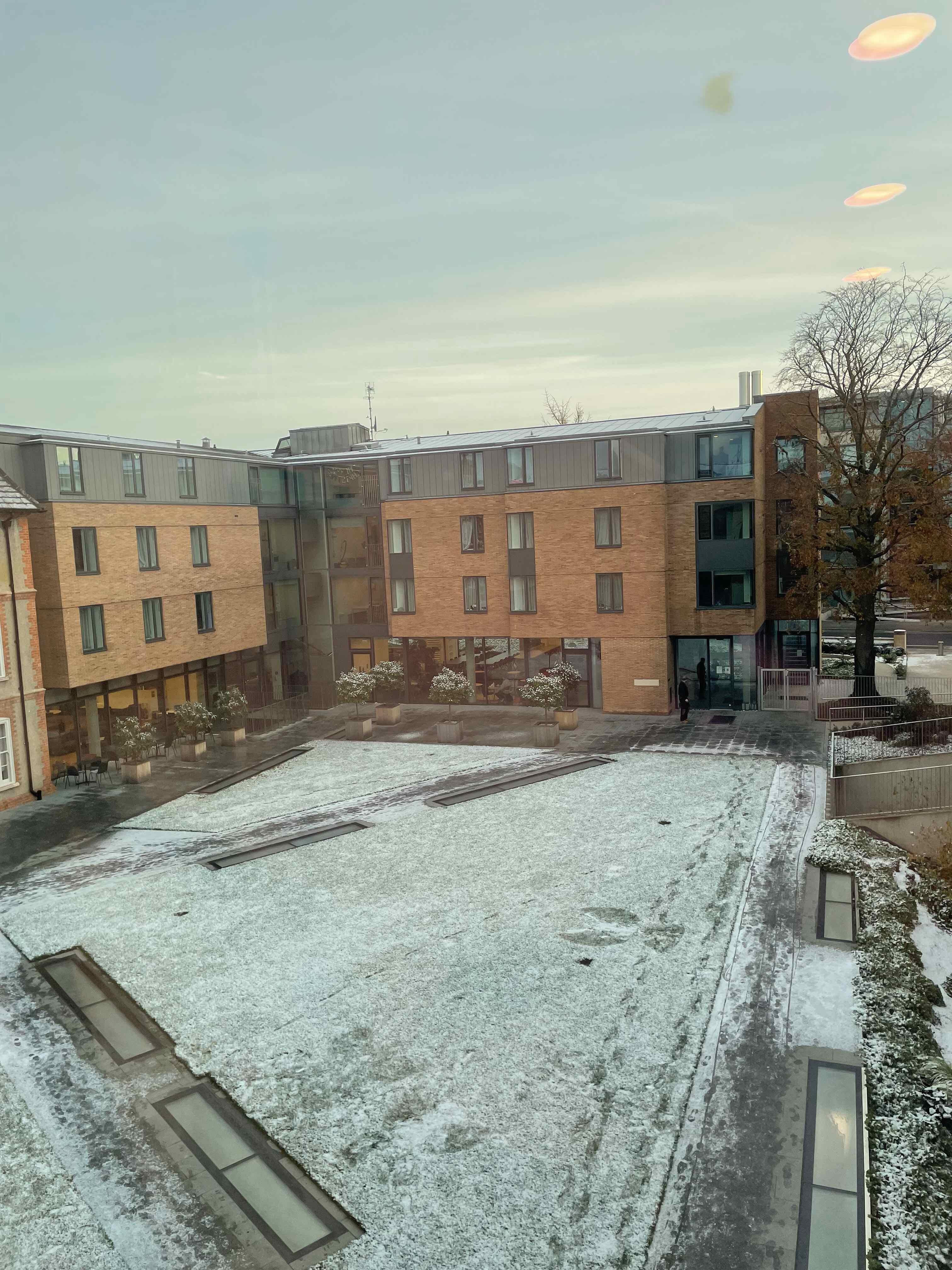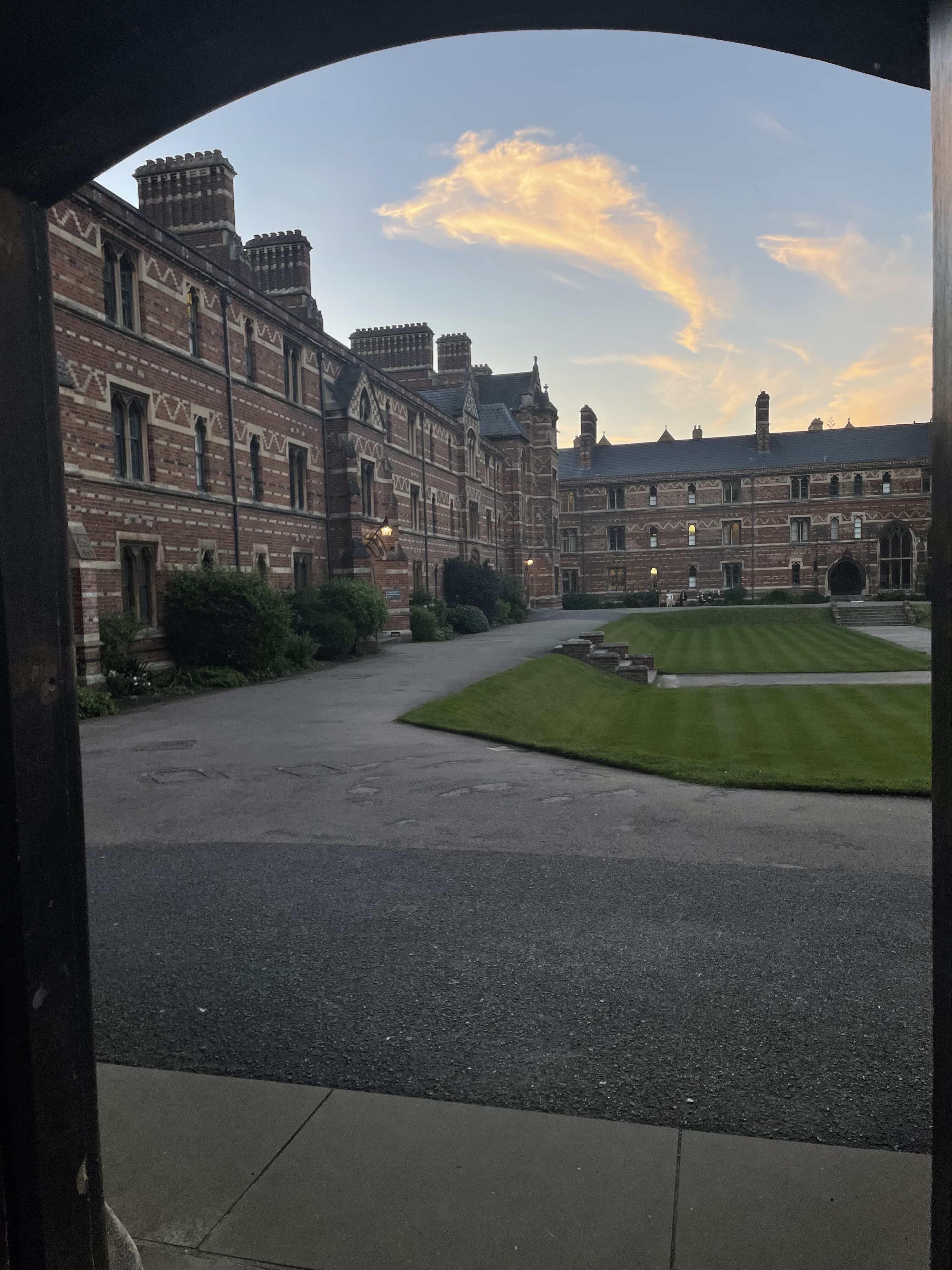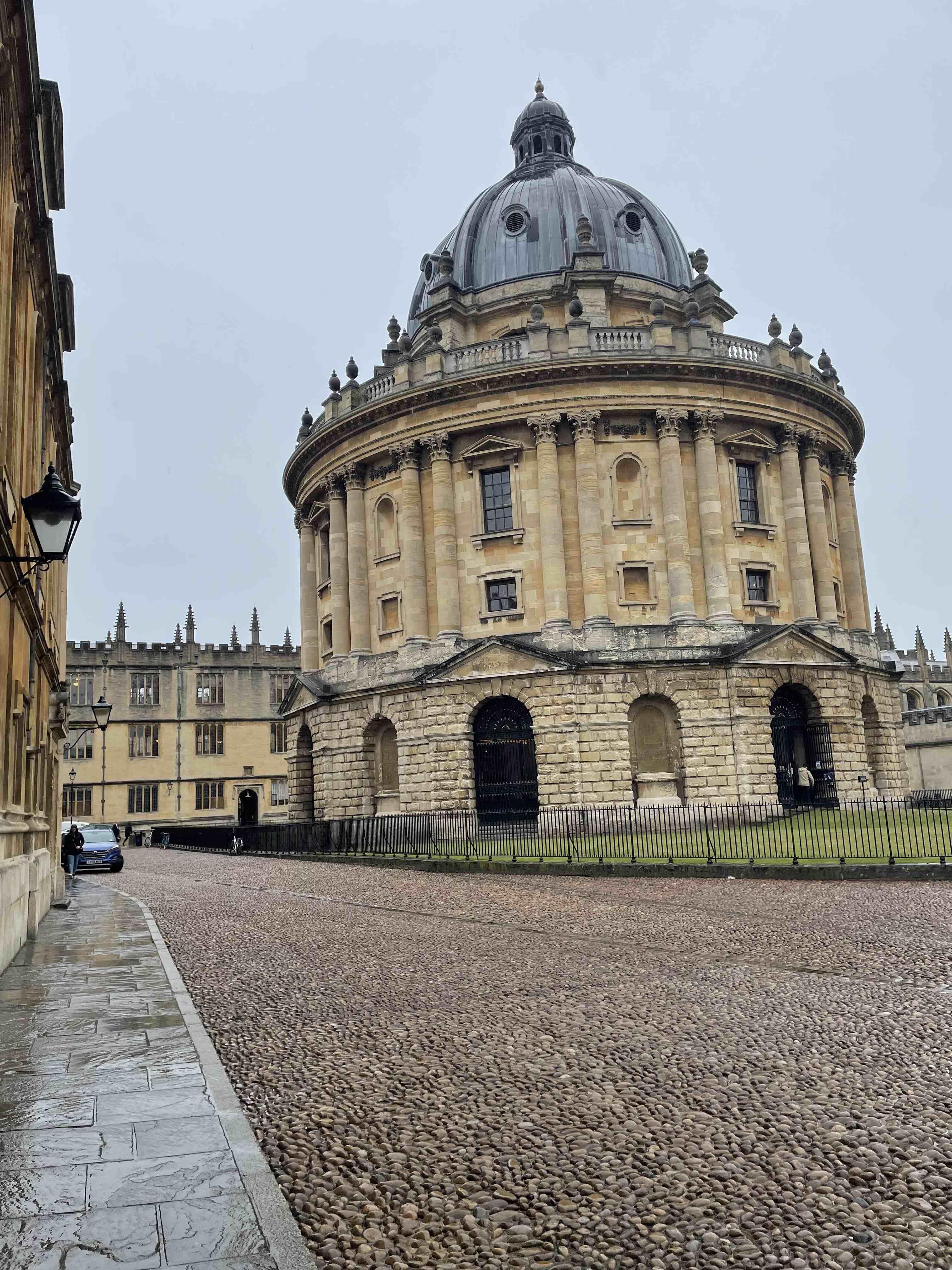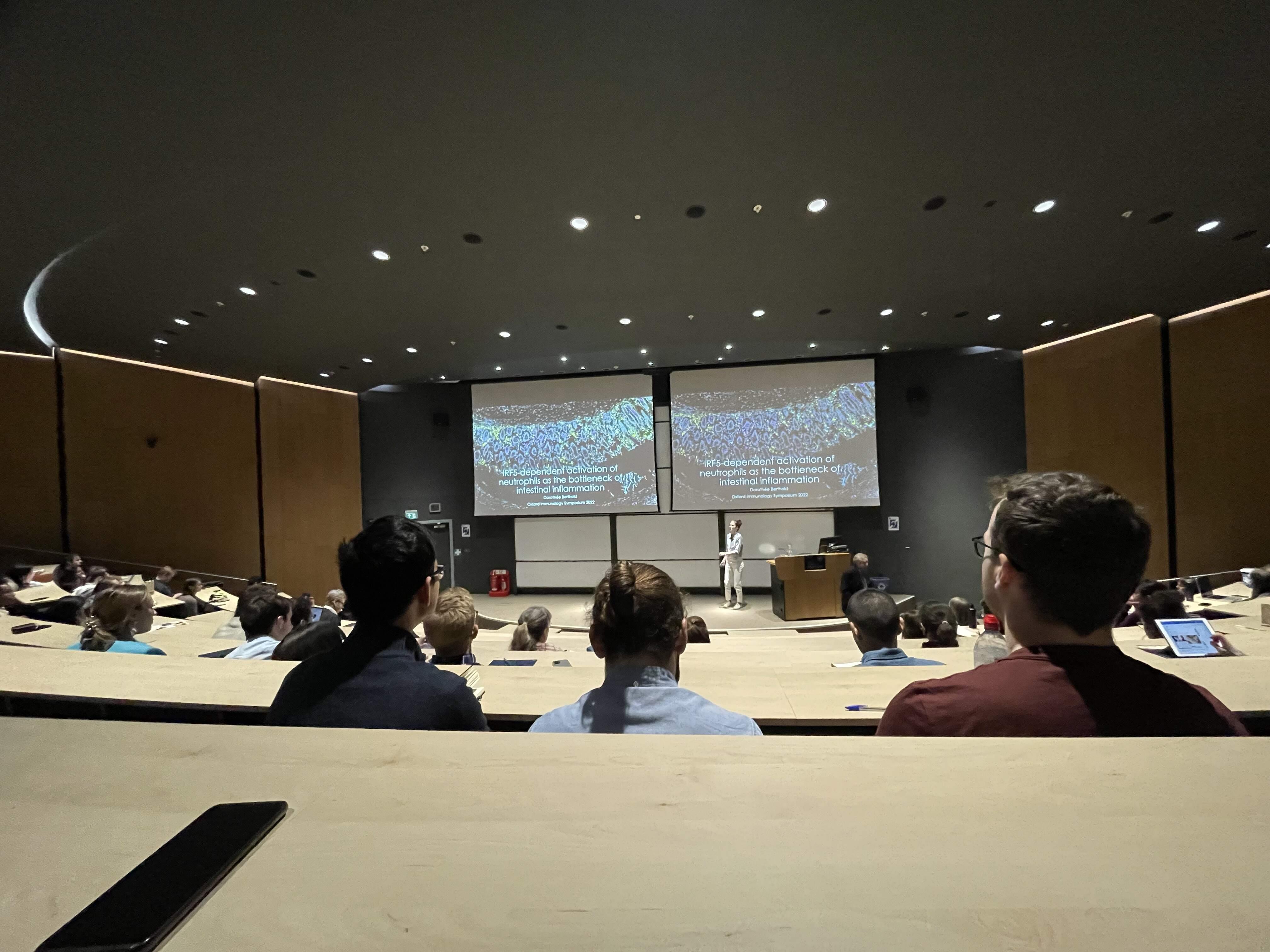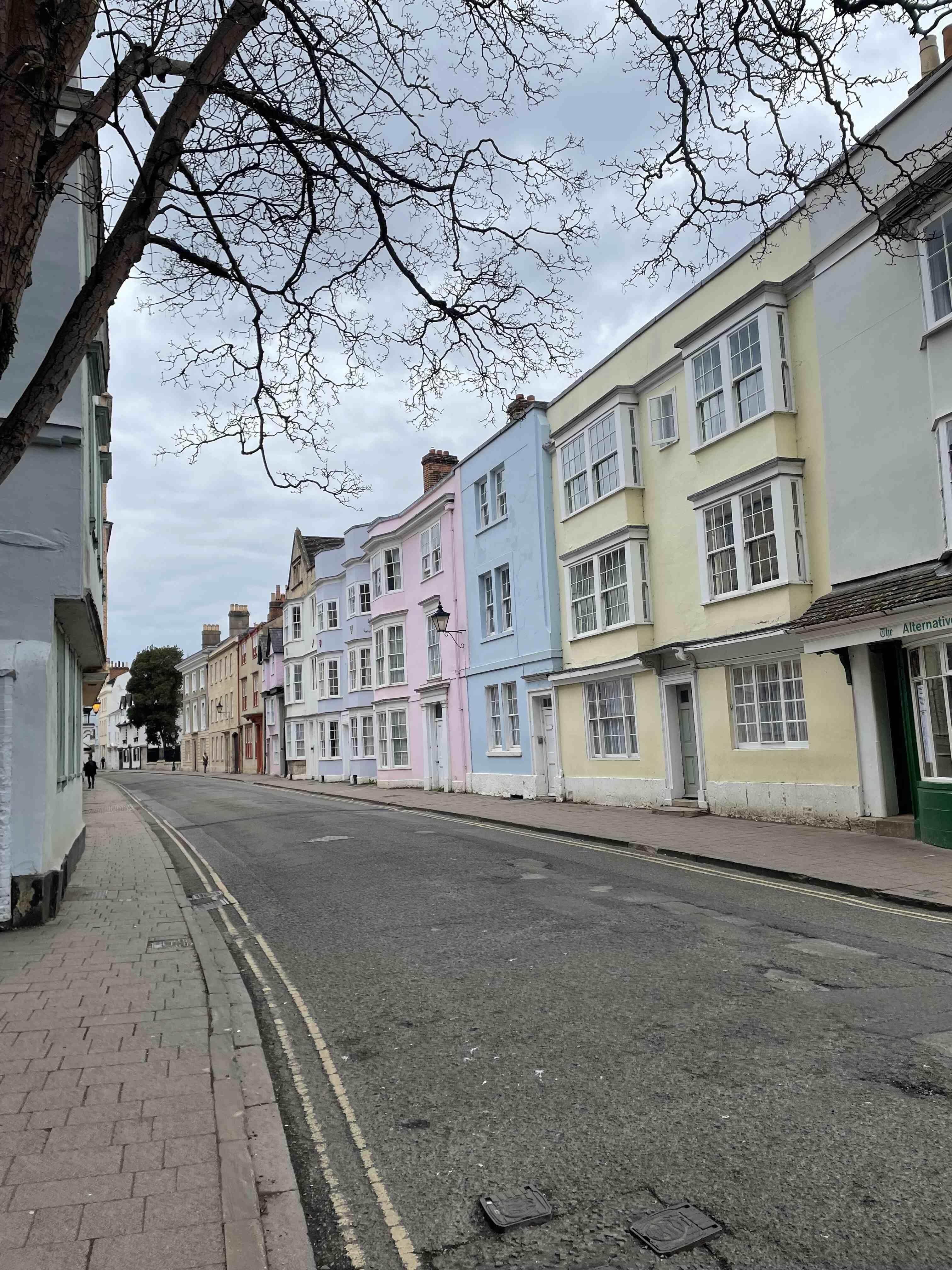What Students Say
Likes
- The University of Oxford has an immensely diverse student community. During my time there, I made friends from different disciplines and other countries, helping me engage myself in a very intercultural community.
- The coursework is very rigorous. It would prepare one for their career and helped me gain a lot of confidence since now I can deal with impromptu events or exams without stressing out since I went through the rigor of coursework at Oxford.
- There is a lot of support available to new students especially if you are struggling with mental health. I was going through homesickness and I feel the resources available helped me navigate that issue within months.
Dislikes
- I felt like transitioning into a new college life, especially for international students, needs more time to adapt. However, they might throw you directly into the coursework, which might make it stressful.
- The cost of living can be high, especially if you decide on dining in the college halls instead of cooking.
- Some of the departments are located far away which means you may have to heavily rely on transport, for eg, mine was at John Radcliffe Hospital.
Course Curriculum
-
The difficulty level was high. It was a mixture of theoretical and practical sessions involving coursework and problem-based learning sessions.
-
The most positive aspect of my course was how it wasn't about learning and memorizing but everything that we were taught was based on practical learning which included clinical case commentaries too.
Admission Experience
-
I applied to 7 universities in total for my Master's degree in Immunology (2021) and was confirmed admission by all (University of Oxford, Imperial College London, King's College London, University College London, University of Nottingham, University of Bath and University of Aberdeen).
-
There weren't any colleges I received a rejection from.
-
Choosing Oxford University over other colleges was an easy choice for me. Not only because Oxford is ranked No. 1 in the world but also because the coursework in Integrated immunology was very different and engaging from the other universities I applied to. It included a research component followed by the coursework being taught by the professors who were experts in their domain.
-
The admission process involved filling out the application form (ensuring you have the minimum GPA), IELTS/TOEFL score, interview rounds and letters of recommendation.
-
The eligibility criteria vary between de[departments. Usually, the accepted exam score for English language proficiency tests is high. I scored an 8.5 out of 9 for my IELTS exam.
-
The overall admission experience can definitely be overwhelming, especially the interview process for admission to the program and scholarship applications. The challenges include navigating the process which can be stressful since during the interviews you may be facing a panel of 10 members or more (for scholarship applications) and between 4-5 panelists. However, it is doable if you put in the right amount of effort starting a year before your intended admission term.
-
I applied for the 2021 intake and the factors that influenced my decision were the coursework, department and university ranking, and networking opportunities. etc.
-
The application process took about a year since it involved writing your statements, appearing for the necessary exams, getting your transcripts mailed directly by your bachelor's institutions to the University of Oxford, interviewing for the position etc.
-
It all starts with the process of shortlisting the university and the subject which by itself can take a month, followed by starting to write CVs and SOPs (this takes about 2-3 months), preparing and appearing for IELTS took me about a month, and then applying, reaching out to referees, interviewing for the position follows the process.
Class Schedule
-
On a day one can expect about 4-5 classes and the timings of the classes can be from 9 am-4 pm.
-
The number of students in my cohort were around 18 and there were no Indian students in the cohort apart from me.
Faculty
-
The faculty-to-student ratio is about 1:20 per class. The structure of the class was very different where we did not have a dedicated professor for the course, but we had a lot of invited speakers who were the best in their own domain.
-
This ratio does not influence the quality of education and interaction with faculty too much since being part of a small cohort, it made it simple for us to engage with the faculty for each session.
-
The faculties ensured that they engaged the whole class during their sessions and gave us many hands-on activities or open questions to answer. The course content and teaching approach are thus very sufficient to prepare one for securing a job or continuing higher education in the field.
-
The faculty members are approachable so they may assist students in finding part-time or full-time jobs through personal networks or references.
-
I cannot pin point one faculty member but all of the ones who taught us did put in a lot of time and effort, and we are beyond grateful.
Campus Life
-
The University has one main campus but the different departments may be spread out to different areas of Oxford.
-
All required facilities are available on campus including a plethora of libraries, sports grounds, medical centres etc.
-
For extracurricular, there would be some societies or clubs that you can join starting from clubs for book lovers to sports camps.
Part Time Jobs
-
As part of the MSc program, one does not usually have enough time so TA or RA positions are unlikely however you may secure them for PhD.
-
Other on-campus jobs can be that of a librarian or helping with the teams in the dining halls, etc.
-
The maximum number of hours of work allowed per week is 20 for international students. However, finding a campus part-time job can be difficult and more difficult to manage time along with the rigour of the coursework.
-
It is difficult comparatively for international students to secure part-time employment while studying because they have a working hour cap, and also managing time effectively while maintaining the required GPA can be bothersome.
-
The usual process of applying would be to reach out after seeing open positions on an advertisement or applying on the university portal. The steps involved would be detailed as part of the application process.
Placement
- Almost 90% of students of the graduating batch can secure employment or PhD positions within 6 months of completing the course.
- The average salary range depends on the country they are applying to. If they secure a job in the UK, it would be above 30000 GBP.
- Students need to apply for jobs on the application portals of universities job portals or listings on the university webpage.
- There are campus events that would also help them talk and network with experts in the field.
Accommodation
-
Once we are admitted to the university, we are also given a college. I was part of Keble College where the graduate assistant reached out to me to let me know of the accommodation choices available to me.
-
The monthly rent of my apartment was about 666 GBP, including all amenities and electricity covered. The structure was 1B1 in an apartment where 7 other people also resided and the only common sharing area was the kitchen.
-
I would say I had a very smooth journey when it came to securing the accommodation because the management is very efficient and gets back with a reply in a day or two.
-
My recommendation for future students would be to start the process of finding accommodation early on or as soon as you get an acceptance letter. That way you can always secure a spot for yourself within campus which will be cheaper and convenient than of-campus facilities.
-
My accommodation was about a 10 minutes walk from my department and an hour's distance by bus from my research institute.
Exams
-
IELTS or TOEFL was a requirement for my course and waivers were usually not available to international students (exceptions did apply). To complete the admission process, I needed my CV, Statement of Purpose, scholarship application statement, 3 letters of recommendation and my English language test results).
-
The interview was a part of my application process. It was about 45 minutes conducted by professors in the department. There also was a graduate student who asked questions about my past experience while the professors focused mainly on my subject knowledge.
-
The overall admission experience was also influenced by admission decision because it made me sure that although the journey wouldn't be easy but it would be worth it because the professors were definitely encouraging and wanted us to think outside the box.
Fees
- The course fee was about 40,000 GBP for my course in Integrated immunology (2021-2022) and the cost of living was around 12,000 GBP including accommodation costs.
- You can estimate having a living cost of around 1000 GBP per month.
- The fees charged for the course are one-time while living costs are paid every month. Transportation can be as low as around 2 GBP per day.
Scholarship
-
One can be eligible for university scholarships as well as scholarships from your country including Inlaks Shivdasani, Rhodes Scholarship, etc. You may also be selected for the Clarendon Scholarships by your department.
-
I received several smaller amounts of bursaries and was a finalist for the Inlaks Shivdasani scholarship although I could not win it. Some of my batchmates were Rhodes scholars, Clarendon scholars etc.
-
On average it can be difficult especially for international students to get scholarships however the percentage varies every year.


